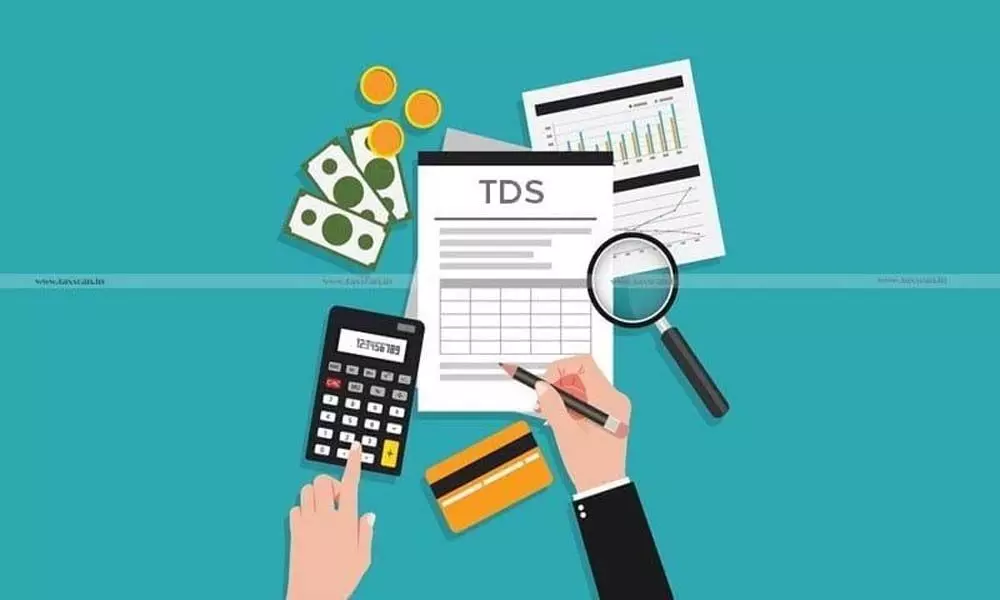New TDS & TCS rules under Income Tax from today
The new provisions of TDS under section 194Q will be applicable only if the goods are purchased from resident seller and will not be applicable if the seller is a non-resident.
image for illustrative purpose

New Income-Tax (I-T) provisions relating to TDS and TCS have been introduced under the Income Tax Act, which shall be applicable with effect from July 01.
As per the newly introduced Section 194Q of the Income-Tax Act, any buyer, whose turnover of the previous financial year exceeds Rs 10 crore, then on purchase of goods of value more than Rs 50 lakh, then such buyer shall be required to deduct tax at source (TDS) at the rate of 0.1 per cent at the time of purchase of goods (at the time of credit) or at the time of payment, whichever is earlier on the amount exceeding Rs50 lakh.
As per Section 194Q of the Income-Tax Act-1961, any buyer whose turnover of the previous financial year is more than Rs 10 crore and suppose he makes purchase of Rs 60 lakh in a financial year, then the buyer will be required to deduct TDS at the rate of 0.1 per cent only on Rs 10 lakh or the amount exceeding Rs 50 lakh. Thus, TDS of Rs 1,000 @ 0.1 per cent will have to be deducted on purchase of Rs 60 lakh.
Further, the TDS deducted under Section 194Q is to be deposited with the Income-Tax Department on or before the 7th day of the next month. It means that TDS deducted in the month of July 2021 is to be deposited upto August 7.
The new provisions of TDS under section 194Q will be applicable only if the goods are purchased from resident seller and will not be applicable if the seller is a non-resident.
"It is very important to understand that if the buyer defaults in deducting the amount of TDS under section 194Q on purchase of goods, then 30 per cent of amount of purchase could be disallowed under section 40(a)(ia) of the Income Tax Act and will be added to the income of the taxpayer and the buyer will have to pay income tax on such disallowance. This will cause additional tax burden on an assessed due to non-compliance of Section 194Q," CA Rajesh Mehta, national vice-president, All India Federation of Tax Practitioners (AIFTP), told Bizz Buzz.
The above disallowance can be prevented if the concerned seller has filed his income tax return within due date of filing income tax return of the buyer and has included the amount of sale consideration in his return of income, he added.
If the buyer's turnover doesn't exceed than Rs10 crores in the previous financial year and if the seller's turnover exceeds Rs10 crore, then the seller would be required to collect tax at source (TCS) on receipt of sale consideration exceeding Rs50 lakh under section 206C(1H) of the Income Tax Act, Section 206C(1H) of the Income Tax Act, was earlier introduced through Finance Act-2020.
If the buyer deducts TDS under section 194Q on purchase of goods, and if the turnover of seller is more than Rs10 crores in the previous financial year, then the seller would not be required to collect tax at source (TCS) under section 206C(1H). However, such seller will have to furnish the information about the receipt of the said sale consideration in his quarterly TCS Statement Form No 27EQ.
Where a seller whose turnover exceeds Rs10 crore in the preceding financial year, then it is advisable that he may obtain a self-declaration, from all its customers/buyers (from whom receipt against sale of goods exceeds or is likely to exceed Rs50 Lakhs in a financial year) that whether such buyer will deduct TDS u/s 194Q or not.
According to Mehta, Section 206AB and 206CCA of Income Tax are also applicable from July 01, under which TDS is to be deducted or TCS is to be collected at a higher rate from taxpayers who have not filed Income Tax Return for the last two years and TDS and TCS for the last two years has exceeded Rs50,000 per annum. TDS or TCS will be required to be deducted or collected on the amount to be paid to him in case of TDS or amount received from him in the case of TCS, at twice the prevailing rate or five per cent whichever is higher. Whether to deduct TDS or TCS at the prevailing rate or TDS at a higher rate, this information can be obtained by entering the PAN number of the concerned person on the website of the Income-Tax Department. The above provisions of TDS and TCS are a step in the direction of curbing the malpractices by certain taxpayers under GST in the country including practices involving fake input tax credit etc. It is necessary for the taxpayers to follow the provisions of TDS and TCS properly otherwise interest may have to be paid in the form of penalty and tax penalty.

